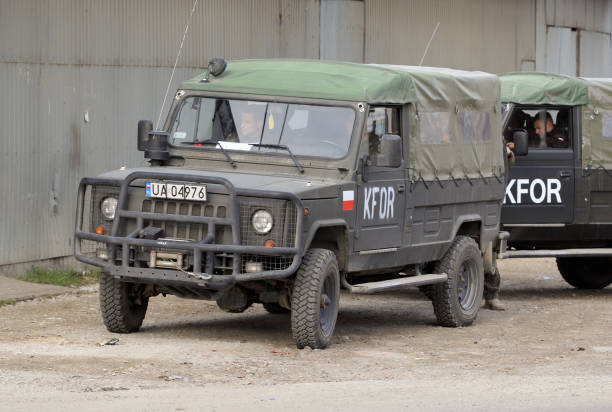Despite the calls of Albanian Prime Minister Edi Rama in the previous weeks, NATO has refused to increase the number of its peacekeeping KFOR units and to retake the policing control of the Serbian-majority North Kosovo. NATO has refused to deploy more of its forces despite the latest events, in which one policeman was killed by Serbs in the village of Banjska/Banjske on September 24, leading to the shooting between Kosovo police and an armed group of Serbs.
NATO is reasoning its decision by stating that it has no law enforcement responsibilities in North Kosovo, and so the European Union Rule of Law Mission (EULEX) and Kosovo Police are responsible for law enforcement in northern regions of Kosovo. According to the agreed protocol, KFOR is only the third responder to incidents, which Kosovo Police EULEX should primarily address, and only then by KFOR units.
In the meantime, Serbian President Alexandar Vučić supported the idea of increased KFOR presence in the regions of north Kosovo while present at the QUINT (France, the US, Italy, Germany and the UK) ambassadors meeting on September 27.
However, Kosovo Prime Minister Albin Kurti expressed an opinion that the current protocol should not be changed, but joint patrols of Kosovo Police and KFOR would be reasonable for him.
Events in Banjska/Banjske only confirmed the instability of North Kosovo, populated mainly by Serbs. Consequently, the attack brought doubts about the future of the EU-mediated dialogue between Belgrade and Pristina. Even though Belgrade refused any link or knowledge about the attack, the leader of the attack, the north Kosovo strongman Milan Radoičić, has links to the ruling Serbian Progressive Party. However, the gunpower his group amassed proves that the attack was contemplated professionally. During the incident, one Kosovo policeman was killed, and three Serbs from Radoičić´s group also lost their lives.
The attack poses a significant blow to the dialogue between Belgrade and Pristina and seriously undermines the minor achievements in the process. However, many analysts on both sides consider the dialogue already dead and unsuccessful. Most of the agreements achieved by the EU mediators are not implemented on the ground. Serbs in the north of Kosovo do not want to accept Pristina as an authority, as they feel oppressed and unheard.
However, the EU-mediated dialogue did not function even before the events from September 24. The events in Banjska/Banjske are just the tip of the iceberg of failures to mediate relations between Kosovo and Serbia. Last year, the barricades were erected due to the “License plate issue,” forcing the Kosovo Serbs to use Kosovo license plates in the Kosovo territory. It unleashed violence in north Kosovo provinces and arguments between Belgrade and Pristina. Also, the clashes between KFOR units, Kosovo Police and Serbs occurred in May/June this year due to the local municipal elections (held in April 2023) in which the party Srpska Lista boycotted the vote. Consequently, Albanian majors took their offices in Serb-populated municipalities in North Kosovo, assisted by Kosovo police.
In February 2022, Kosovo PM Kurti and his Serbian counterpart Vučić agreed to provide Serbian (majority) populated areas greater independence from Pristina institutions, allowing Kosovo´s further integration into the international institutions. Despite the pre-agreement, the official version was not signed by either Serbia or Kosovo, and its implementation is practically non-existent. It is also because Serbian leaders practically refused the agreement. Kurti was not eager to accept the creation of the Association of Serbian Municipalities, giving the Serbs in the north greater autonomy.
Therefore, the latest wave of violence is disturbing. Still, in the current environment and relations between Belgrade and Pristina, the attack is just another event that deteriorates already flawed relations between both countries. If the EU wants to improve the situation, it requires a stricter and more precise scheme to normalize their relations and bring them closer. Only then could both countries think about the European Union membership, which now looks too far to achieve.

